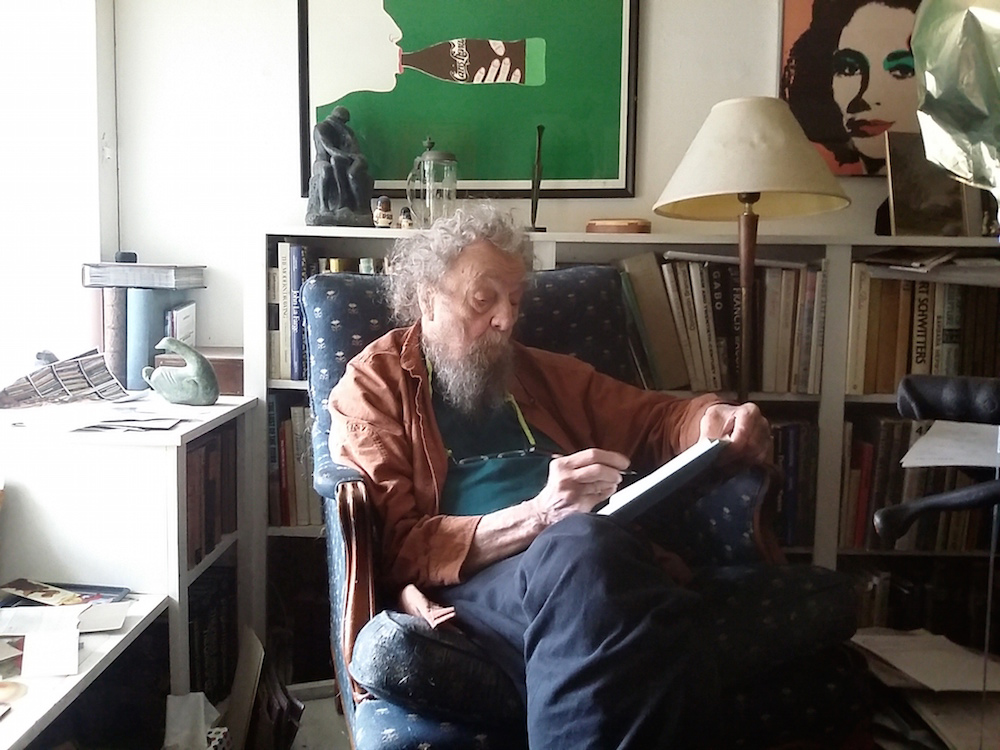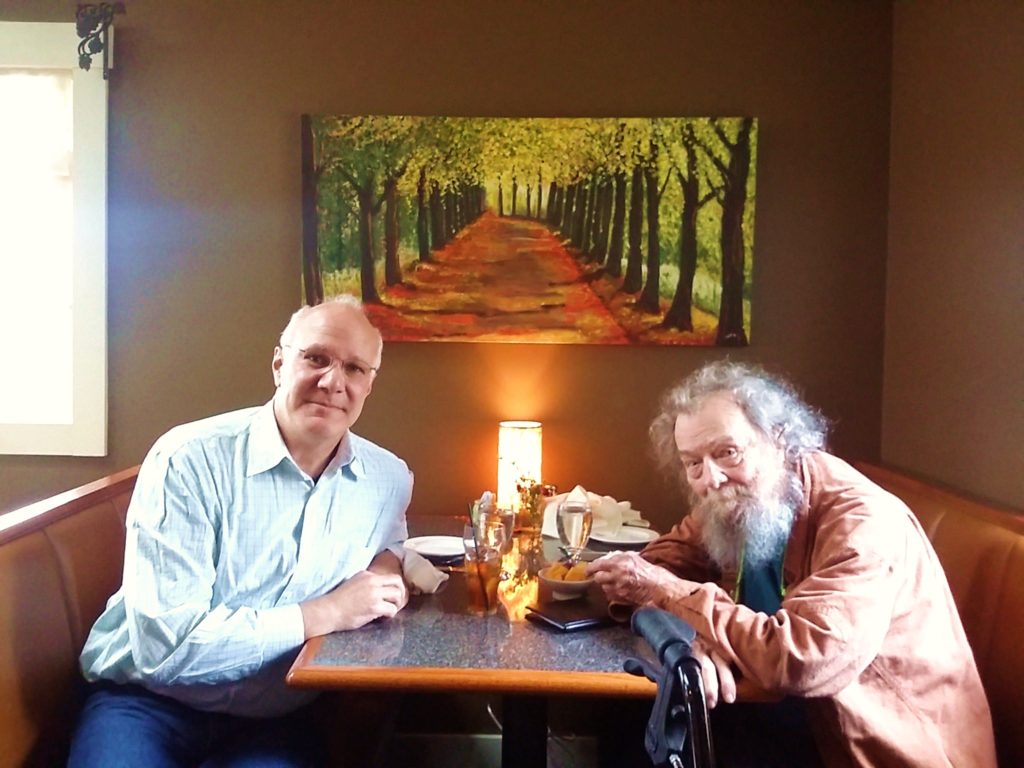He worked hard and now can rest. He was one of America’s best loved poets and won all the literary awards. At age 86, he had his first New York Times Bestseller, with Essays after Eighty, celebrating the indignities of growing old. I once gave him a terrible review and we didn’t speak for years. “I know I was pissed at you for ten or twelve years,” he wrote, “I take it back. You are good.” He was a judge for the Pulitzer the year I was a finalist. We became friends.
He wrote dozens of books—poetry, short stories, children’s books, criticism, and textbooks. He was devoted to the art and craft of writing, and his discipline was an example to others. He seemed to give his life over to work and Eros. He was also very funny and very particular (“I love chicken salad, egg salad as long as it has onion, turkey and salami. I don’t like tuna”. The horrors of antiquity—a “black fatigue,” congestive heart failure, “a hundred and fifty colonoscopies,” walking more slowly with his “rollator,” falling down, the loss of words—did not exclude joy and love.
At the Harvard Advocate, in 1948, he and Robert Bly got to be friends while together reading Robert Lowell’s second book of poetry “Lord Weary’s Castle.” He and Frank O’Hara and their classmates drank beer at Cronin’s all the time. Later, though he loved teaching undergraduates in Ann Arbor, he loved, even more, writing all day every day, so he came back to rural New Hampshire to live in the house on the land where his ancestors had lived.
Don loved metrical verse and had a cranky passion about it. Way back at the beginning he wrote in somewhat strict iambic pentamer. But after years of reading Thomas Hardy, he loosened up and wrote with a more improvised structure. Metrical verse organizes sound in the mouth in a beautiful way he could not resist. Still, he loved free verse, “whatever that is!” and wrote it, though eventually he stopped writing poetry altogether: “I didn’t give up on poetry, poetry gave up on me.”
I think he feared that readers might like his prose more than his poetry (Maybe I did), but his book length poem in three parts “The One Day” is a magnificent creation and won the National Book Critics Circle Award. It is a poem written out of a barrage of language, a “meteor shower” of words that became a book seventeen years later. Part-reminiscence and part-fantasy, this extraordinary long poem records both a personal crisis and a corrupt contemporary political culture. “An astonishing tour de force,” to quote Charles Simic’s review in The New York Review of Books.
I give my deepest thanks to those who cared for Don daily, as his life slowly moved away from him. Kendel, who typed. Little Louise who delivered the mail. His cousins who plowed and dug him out in winter. His trainer. His cook. His caregivers. Linda, his girlfriend. His beloved kids. His grandchildren. To quote a friend, “So now, earth receive an honored guest…”
Our Art of Poetry interview with Donald Hall is available here.
Henri Cole is the author, most recently, of Orphic Paris. You can read our Art of Poetry interview with him here.
from The Paris Review https://ift.tt/2KmGxpr


Comments
Post a Comment